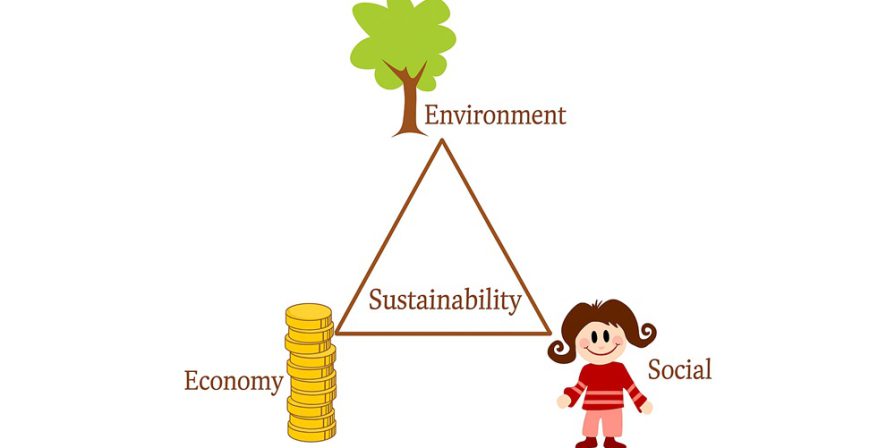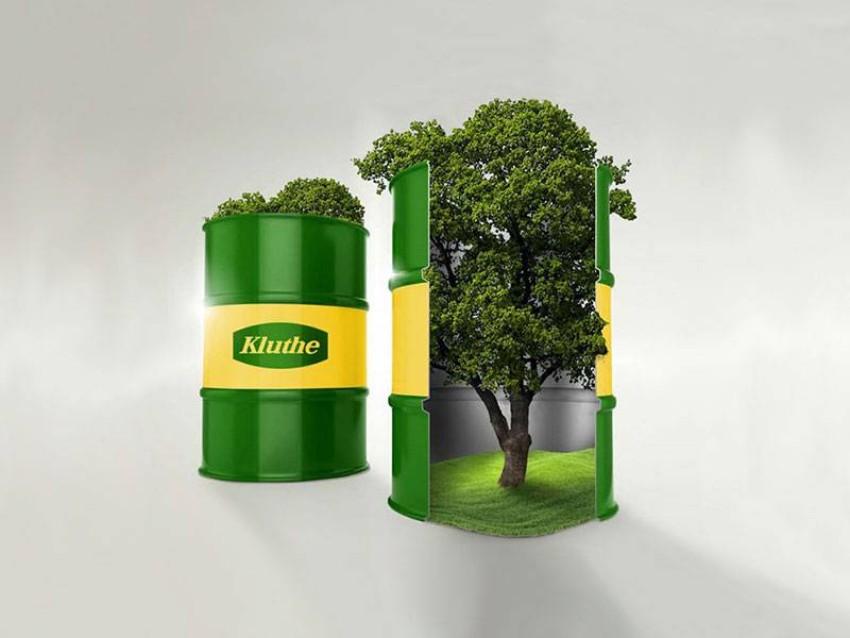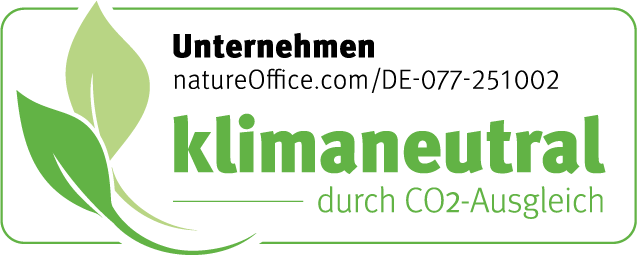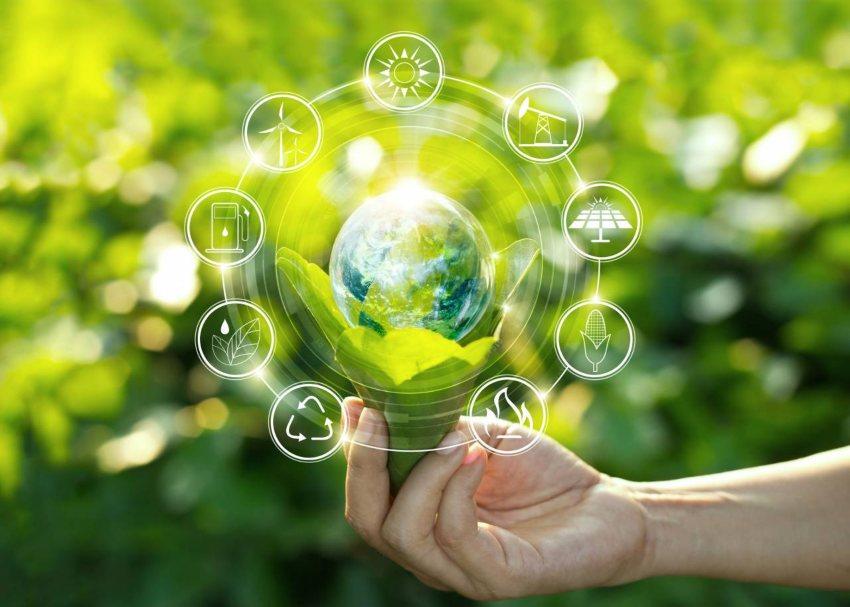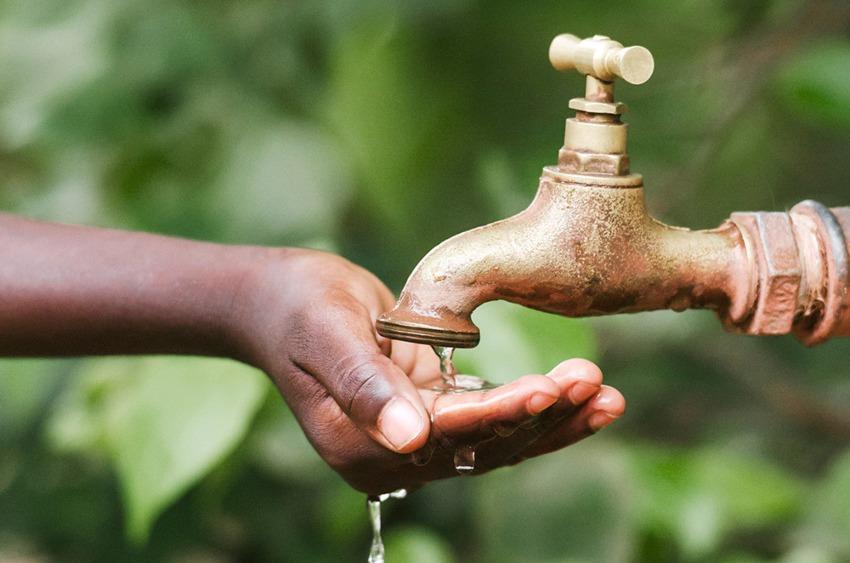Why Economy, Ecology, and Social Responsibility Must Be Seen as a Unified Whole in Industry
In the 1990s, the concept of the “sustainability triangle” gained traction in environmental discussions. It was particularly influential in the chemical industry, which contributed valuable insights—arguing that sustainability must encompass not only ecological concerns but also economic and social aspects. This perspective sparked widespread interest across other industrial sectors. Here is a look at what the sustainability triangle entails and how this model has influenced climate protection efforts.
What Is the Sustainability Triangle?
The sustainability triangle is a conceptual model based on the interconnectedness of natural and societal processes. Most human actions can be categorized into three spheres: ecology, economy, and society. The triangle serves as a visual metaphor for these relationships.
A closely related model is called the “three pillars of sustainability,” where each pillar represents one of the three core areas. Both concepts are widely used in politics and business to develop strategies for a sustainable and equitable world that benefits everyone. Such a world becomes possible when balance is achieved between environmental health, economic activity, and social cohesion.
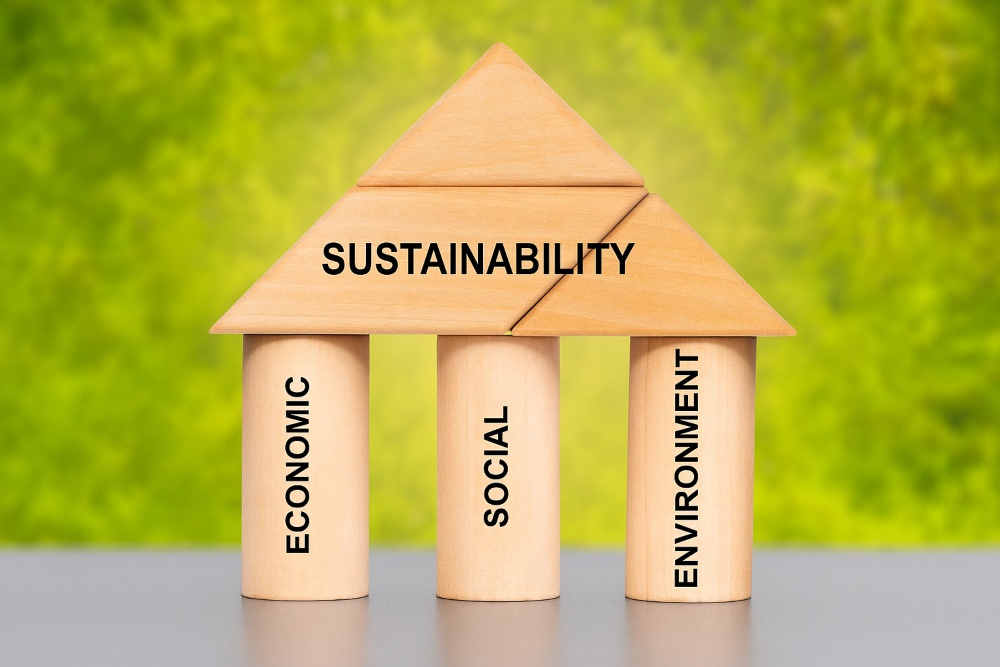
Ecology in the Sustainability Triangle
A healthy environment is the foundation of all human life. This includes the physical and chemical conditions essential to our metabolism—such as temperature, air pressure, and the absence of toxins—as well as basic elements like air, water, and food.
Over millions of years, a stable natural balance allowed life, and eventually humanity, to emerge. This balance depends on a web of natural cycles—evaporation and precipitation, food chains, respiration and photosynthesis.
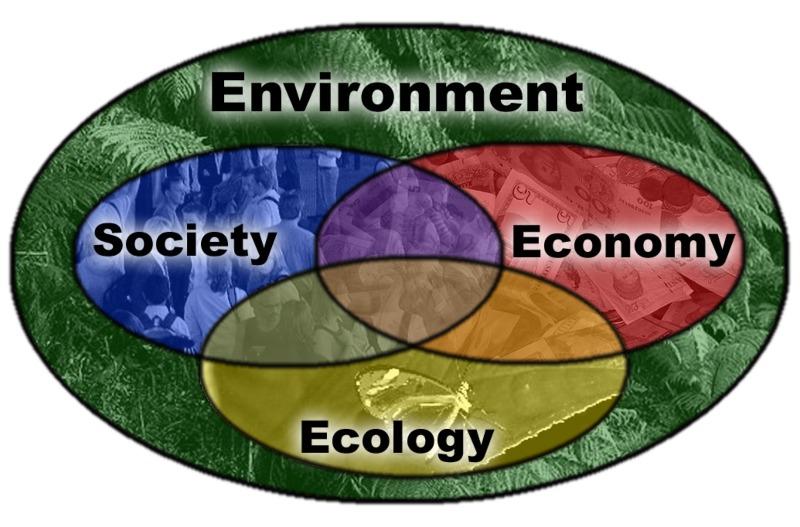
Industrial development, however, has led to a growing disconnect from nature. While this progress has brought prosperity to many, it has also come at the cost of environmental exploitation. For years these negative impacts were largely overlooked. Now, we face an ecological imbalance that threatens our very foundation for life. Ecology, therefore, plays a crucial role in the sustainability triangle. Its main objectives include:
- Climate protection to safeguard the physical conditions for life
- Habitat preservation to maintain biodiversity
- Pollution prevention across air, water, and soil
- Responsible use of natural resources, such as raw materials, water, and land
A return to a purely “natural lifestyle” is neither realistic nor desirable. Instead, society—and especially industry—must develop innovative solutions to meet ecological challenges in the modern world.
The Role of the Economy in the Sustainability Triangle
People rely on essentials like food, clothing, housing, and tools. Providing this is the task of the economy, especially industries, agriculture, and commerce. The financial sector ensures that these domains remain operational.
A sustainable economy requires responsible business practices that support environmentally sound production. As global supply chains expand, this responsibility must also extend to the sourcing of raw materials.
A sustainable economic model relies on technologies that align with environmental goals, such as:
- Energy from renewable sources
- Efficient use of energy and raw materials
- Durable products
- Waste recycling
- Product refurbishing and reuse
- Emission reduction
The chemical industry plays a key role in developing these technologies. Fundamental research in chemistry lays the groundwork for practical applications. Applied chemistry then creates eco-friendly products. Two primary areas of focus are sustainable chemistry and green chemistry, with the latter focusing on the environmentally sound production of raw and consumer materials.
For example, the use of sustainable products for surface treatment is steadily increasing. . And sustainable chemistry ensures that even downstream users of these materials can act in an environmentally conscious way.
The Social Dimension of the Sustainability Triangle
The sustainability triangle also recognizes that individuals must be empowered to take part in environmental protection. But that requires having the freedom to choose. People struggling to meet basic needs cannot be expected to maintain the world for the privileged.
This is particularly relevant for populations in developing countries. A key step is giving them access to modern, eco-friendly technologies. Equally important is fair trade, which provides people with an income sufficient to support a dignified life for themselves and their families. In the United States, the EPA’s Environmental Justice initiatives focus on this social dimension through programs like the Environmental Justice Small Grants Program and EJSCREEN mapping tool, which help identify communities disproportionately affected by pollution and environmental degradation.
When poverty is reduced globally, it creates better conditions for addressing other social goals—such as adequate food and drinking water, healthcare, education, and cultural participation.
Connecting Ecology, Economy, and Social Responsibility
By definition, the sustainability triangle is equilateral, meaning each side holds equal importance. Likewise, the three pillars of sustainability are of equal length. Industry and finance recognize that ecology, economy, and social concerns are equally vital for sustainable development. The idea is to create a world that is viable, livable, and fair:
- Ecology + economy = a viable foundation
- Economy + social responsibility = fairness
- Ecology + social responsibility = livability
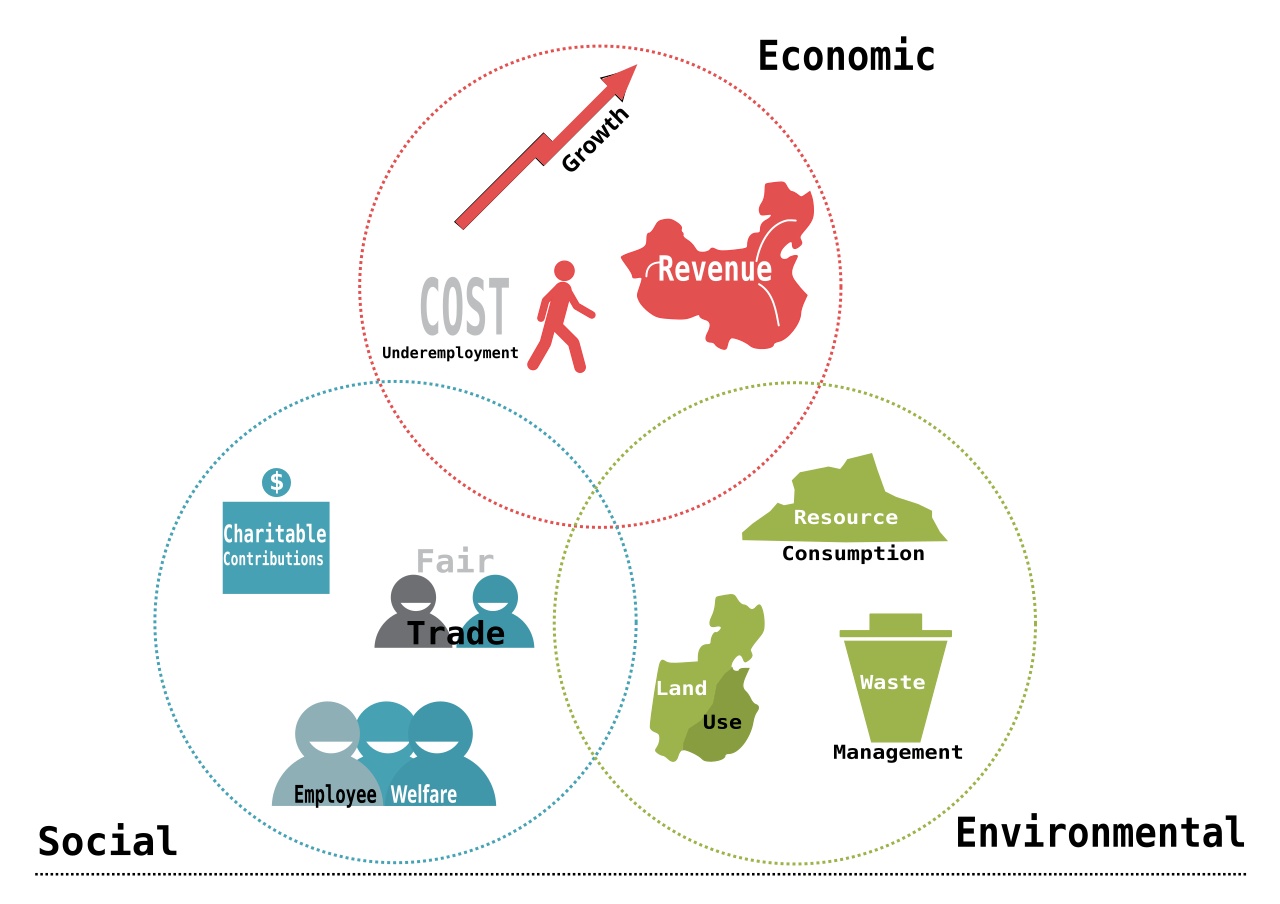
That logic seems sound, but even flawless logic only shows us the correct path of reasoning. Whether the conclusions match reality depends on whether the initial assumptions are true. If they are incomplete or flawed, even perfect logic will not lead to the right answers. That is when real-world experience becomes essential.
Each goal within the sustainability triangle is worth striving for. But not all goals are equal in priority. Some are prerequisites for others.
Many environmental scientists and policy experts argue that climate protection should be a leading priority. Different stakeholders, however, may rank these priorities differently based on their values and contexts. The theoretical model of equal weighting has been criticized by some for potentially slowing progress on urgent environmental issues. Ecology, economy, and social factors must form a unified approach in industry—with the balance being determined by both scientific understanding and societal values.
In the United States, this approach aligns with evolving regulatory frameworks from the EPA and state environmental agencies, as well as voluntary corporate sustainability standards like those promoted by the Sustainability Accounting Standards Board (SASB). Companies increasingly recognize that proactive sustainability measures can help them stay ahead of regulatory requirements while building consumer trust.
A balance still exists if the unity of economy and social needs counterbalances ecological demands. But an ecologically healthy environmentis the precondition for life itself. For true sustainability, the economy must operate within ecological limits so that broader social goals can be achieved.
 Kluthe Magazine
Kluthe Magazine
